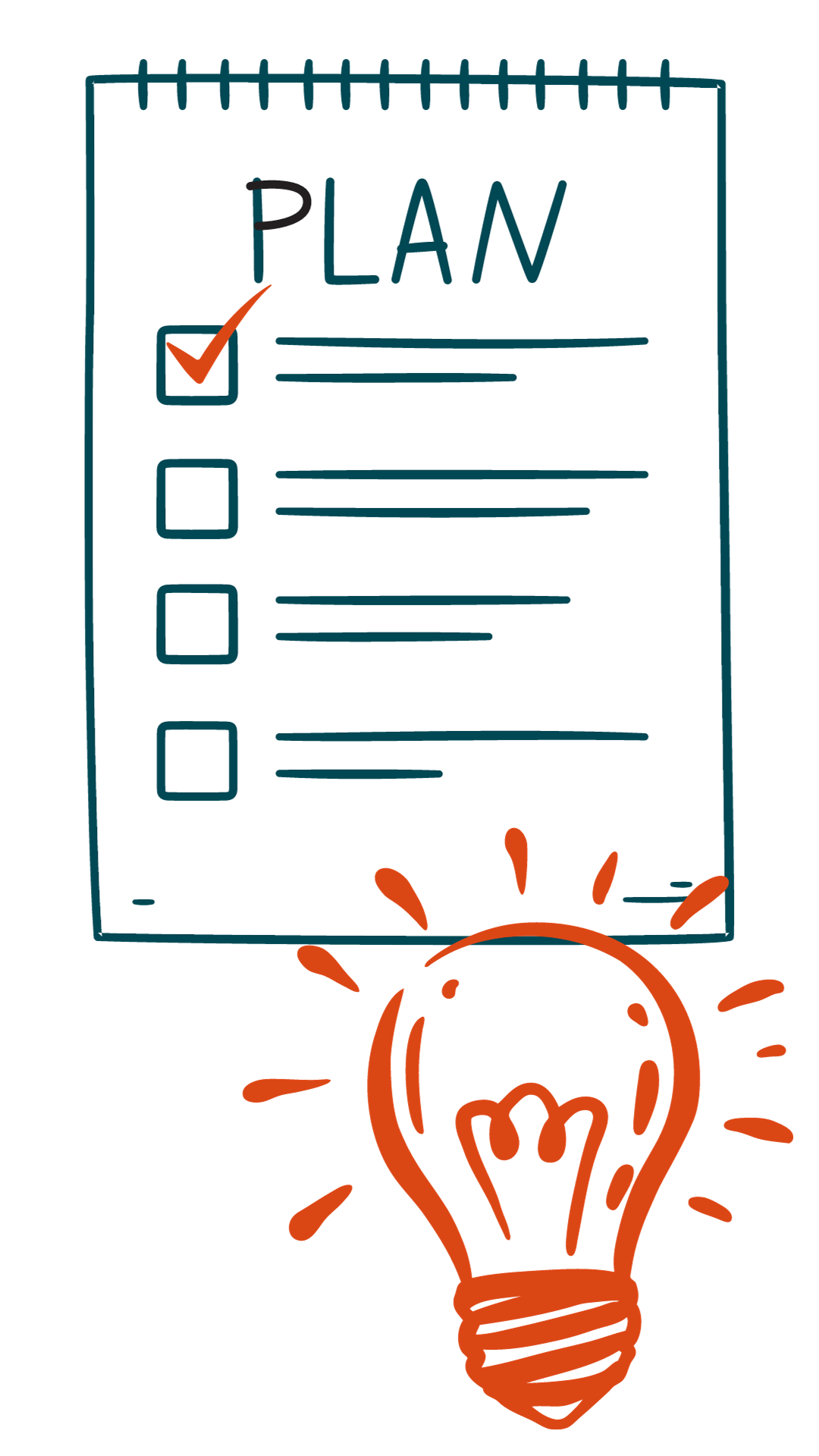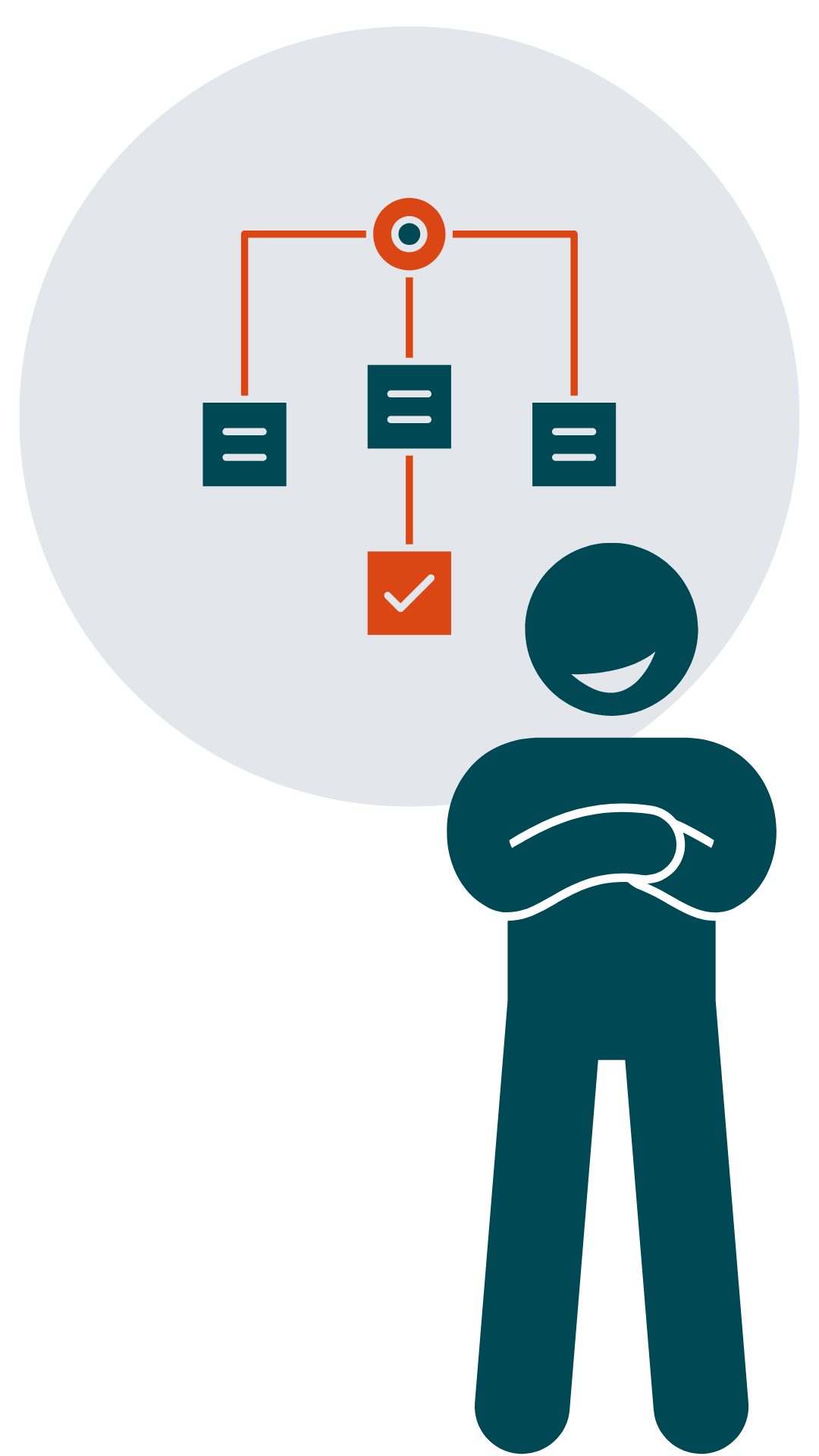Make Your Podcast Content Calendar
After you've decided on a genre and topic, decide how often you want to release new episodes. Keep in mind that you'll need time to prepare, record, and edit each episode to ensure that your podcast content is of the highest quality.

Making a new episode each week can be daunting in the beginning if you already have a lot on your plate. The good news is, there's no one "right" publishing schedule. You can do weekly episodes, bi-weekly, monthly, etc. The important thing is to stay consistent and plan ahead.
Sticking to a publishing rhythm makes it more likely that your listeners are more likely to stick with you for the long haul. And the most important way you can achieve this consistency is with an editorial calendar.

Step #1. Keep a log of podcast episode ideas
Before creating your calendar, the first step is to collect all your ideas. This includes brainstorming topics, potential guests, and any additional segments or features you want to incorporate into your show.
It's important to take the time to gather all these ideas and organize them in a central location so that you have a clear vision of what your podcast will be about.
Step #2. Research podcast topics ideas relevant to your audience
To verify that your ideas are relevant, you can do the following:
Ask Answer The Public
Utilize online tools like Answer the Public. This platform provides a wealth of insight into what people are searching for around a particular topic. By inputting relevant keywords, you can gather a multitude of potential podcast ideas that are already in demand.
Keep an Eye on Trending Topics
Watch current events and trending topics in your industry or niche. These can provide timely and relevant content ideas for your podcast. Additionally, you can incorporate your own perspective and analysis on these topics to make them unique to your show.
Step #3. Publish podcast episodes regularly
As a new podcaster, one of the keys to success is consistently releasing episodes on a regular schedule. This not only helps you build an audience by giving them something to look forward to, but it also shows your dedication and professionalism as a content creator.
Regularly scheduled episodes help establish a routine for both you and your listeners. By setting specific upload days and times, your followers will know exactly when to tune into your podcast, making it a part of their weekly or daily schedule.
Following these tips can help build a loyal fan base who will eagerly anticipate and listen to each new episode.

After launch: How to keep podcast ideas flowing
Once you start producing content, you'll find that previous episodes often give way to new ideas. Here are some ways you can keep generating more content ideas for your editorial calendar once you launch.
Get listener feedback
Reach out directly to your audience through surveys, social media or email. Ask them what topics they'd like to hear about. This direct feedback can provide valuable insights into what your listeners are interested in and help you populate your editorial calendar effectively.
Repurpose old podcast content
Don't be afraid to repurpose old content into new podcast episodes. This could include turning blog posts or articles into podcast scripts, or revisiting past episodes with updated information and insights.
Diversify your sources
Don't be afraid to step outside of your comfort zone and explore new topics and formats - it will not only bring diversity to your content, but also attract a wider audience.
Amazing, Part 2 is finished! ✅
Continue now to Part 3: Choose the Right Podcast Equipment for You
How To Start a Podcast: The Definitive Guide
- Part 1: Create a Captivating Podcast Concept
- Part 2: Make Your Editorial Calendar
- Part 3: Choose the Right Podcast Equipment for You
- Part 4: Brand Your Content: Find the perfect title, music, and artwork
- Part 5: Prepare the Perfect Podcast Recording Studio
- Part 6: Record Your First Episode: Scripting, style, and storytelling
- Part 7: Streamline Your Recording & Editing Workflow
- Part 8: Choose a Podcast Hosting Service: Tips for selection and setup
- Part 9: Maximize your Podcast Reach: Publish to Apple Podcasts, Spotify, Amazon, and other platforms
- Part 10: Learn Powerful Podcast Promotion Strategies
Start your podcast today with Podigee
.png)
- Publish your podcast in just a few clicks: on Spotify, Apple Podcasts, Youtube and everywhere else where podcasts are available.
- Unlimited storage for your podcasts, secure and privacy-compliant, detailed playback analytics.
- Outstanding support at every step of your podcast journey, right from the start.